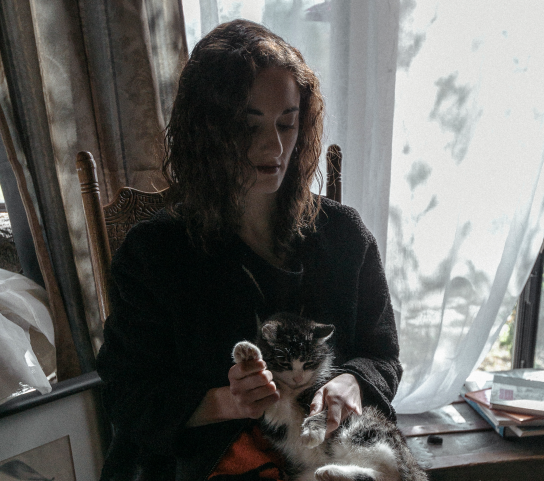By Justin Joseph Hall
Music offers an experience all on its own, but it is also a powerful tool that can enhance other experiences. A song or score is an easy cheat to enhance emotional storytelling because we have such a strong reaction to it. In my opinion, music can often be more effectively used when creating branding, a story, or most things for that matter.
I am a storyteller who directs and edits films as well as a business owner who hosts events. In all of these activities, I use music to enhance the experience of what I am creating.
Music for Film
David Lynch once said something about how when people watch his films he wants reactions like, “Oh yeah, I’ve had that feeling before.” That’s the same thing I look for when choosing music for my films. First, I step back from the edit and think about the feeling the movie gives me. Then I think about what songs or musicians give me these same feelings. The feeling I get when watching a movie without a soundtrack is the feeling I want to reflect in my music choice. I don’t always follow this process, but it’s always where I start.
Actress Claudia de Candia on the set of Prologue. Photo by Daria Huxley.
When choosing a song I step back and relate it to the closest song or artist that reminds me of that scene. For my short film Prologue, I knew the film was somewhere in the vein of Aphex Twin. His Ambient and Ambient II albums had the offputting yet gentle feeling of the scenes and story. So I started choosing my music by listening to his albums. This led me to some other amazing artists like Goran Bregoviç, The Parlour Trick, and Ellen Allien, just to name a few. This process can take time. Sometimes I listen to my music library on shuffle while I edit and if a song strikes me, I add it to the playlist of potential music for the soundtrack.
Then I test the songs in the scene. I often try 10-20 songs in a scene and narrow down the best 3 options. I then test my favorite out on an audience to see their reactions to the scene. This helps me so much. A song you love could really change the scene for someone or worst of all be a distraction from the story. The sound of a human voice especially can be overpowering as it often catches the ear more than instruments.
Speaking of vocals, let’s chat about lyrics for a second. It’s important to know that people pay attention to lyrics, especially when accompanied by visuals in a story. It can be very, very powerful, but you have to be very careful that the lyrics also add to your story but don’t take away from any dialogue that is important in a scene. This also means that if you use a song in a language you don’t know you need to make sure you know what the lyrics mean.
I ended up choosing about 4 artists for the Prologue soundtrack. The songs work well, and fully enhance the emotion of the story in the direction I wanted it to go.
Music for Documentaries
When choosing music for a documentary the guidelines are the same as for narrative work. However, it’s often better to be more neutral versus emotional with song choices. Audiences get very critical regarding documentaries that feel manipulative with music as it feels biased or even not factual. Music has been used so much in propaganda that it is very important to consider the relation the viewer may have to a song you want to use in your documentary.
Music for Commercial Videos
The most common thing I hear when editing commercial videos is brands saying, “I want music that’s happy.” This is marketers thinking they need “positive” branding for their ads. Then they tend to copy other ads very closely and everyone chooses a positive techy electronic sound or acoustic ukuleles and guitars. This makes your ad become more of a parody and less of an experience. What makes a story or branding memorable is the experience. So depending on what you’re explaining or telling you have to dig into the messaging of the story and then come up with feelings that match musically.
For example, I was editing a commercial spot for a tech company called HillSDK. It’s a tech brand that wanted to promote a new app to help connect our representatives with constituents. The app is techy and looks forward to connecting people in a new future. I immediately thought electronic, intellectual, and forward-thinking is really on brand. With my music already labeled well, I went to my library to search for a cheaper electronic sound, which I usually associate with tech and the future and ended up finding a beautiful piece by Paper Tiger that felt forward-thinking. The addition of the song complemented the visual blue color correction of the video, kept the mood positive, but felt mentally stimulating — like the beginning of this adventure with the tech company. The client loved the music, I licensed it, and there were no further discussions about “positive” music because they knew their story was being enhanced.
If you have any questions on where to start choosing music or want to hire Justin Joseph Hall to be a music supervisor on your project, email him at justin.joseph.hall@fourwindfilms.com

